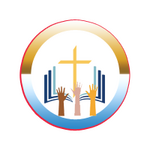ORIENTATION:
The lessons in this part will orient local pastors and Christian leaders to know the importance of developing a local EM team and talk about their responsibilities in developing the EM team. The value of first exploring the desires and needs of a people group for ethnic music is important. Therefore, until there is some shared vision and desire about the role of local music among the local leaders, the EM team should not move ahead with further EM program. In the meantime, they should focus on encouraging and praying for that level of vision to develop within the local community.
EXPLORATION:
In some contexts, the EM facilitator needs to work with some leaders who are from a cross-cultural background. They may be church planters or working with para-church organizations such as those involved in Bible Translation, Scripture Engagement, etc. The EM facilitator, along with the leader, has to find out the needs and find out and develop the way forward for EM activities in that project. The lessons in this stage will give clues to both the EM facilitator and the leader as to how to start EM in the particular community. In this part, they will discuss the various music types, their importance and the occasions in which music is used in the particular language. The roles of the leaders and the EM facilitator will be clearly identified at this stage for taking the EM way forward.
INITIATION:
This part is meant to be used in a songwriting workshop. This workshop is usually organized in the locality of the community members. The lessons will be taught in the workshop according to the schedule. The workshop helps to develop in the people a mind-set to respect their own ethnic songs. It helps the participants to realize how much effect scriptural ethnic music can have on the community especially for people to grow in the knowledge of the Lord. The participants will be trained in writing Scripture-based songs in a culturally appropriate way using their mother tongue. They will also be trained to check the Biblical accuracy of the songs and will learn to record songs and distribute them through relevant media. The learner will be doing self-generated research throughout the lessons about their own ethnic situation. By the end of the course, they will leave with ample knowledge about their own culture and a curiosity to do further research.
The first two parts, EXPLORATION and ORIENTATION, can be organized either in a workshop setting or as face-to-face discussion. The third part, INITIATION, is to be conducted in a workshop setting, ideally in the language locality. A particular part of the manual can be chosen for use according to the need.
The lessons in all three stages are organized using the Learning that Lasts (LtL) method, which is a dialogical method of teaching in which the trainer and the trainees interact with each other and the others in the class to learn things. The lessons include drama, songs, discussion, etc. as part of the learning tasks.
As a result of the course, the participants will have not only learned for themselves but will also be equipped to help others learn what they have learned through these modules.
